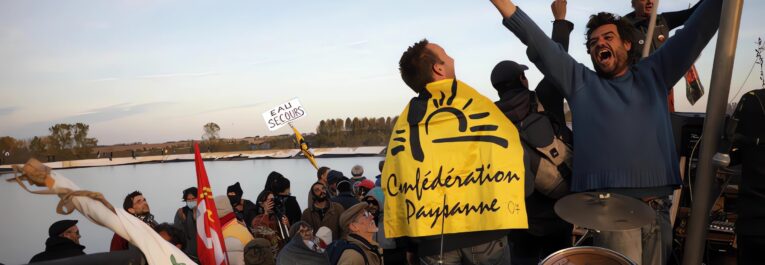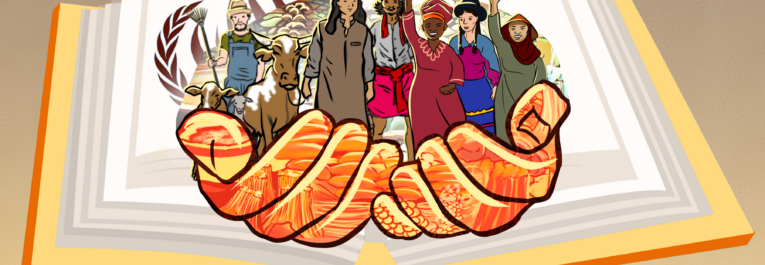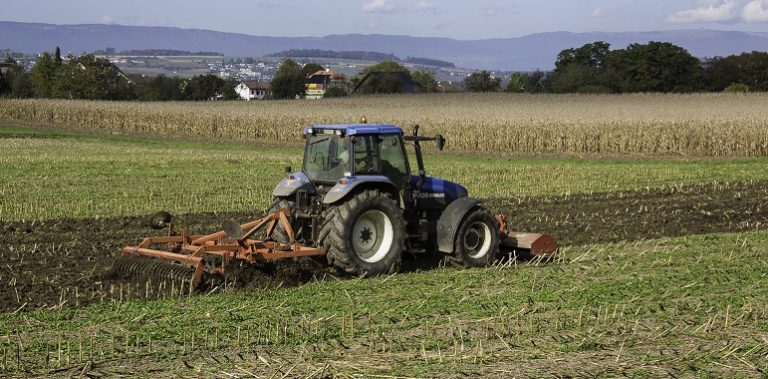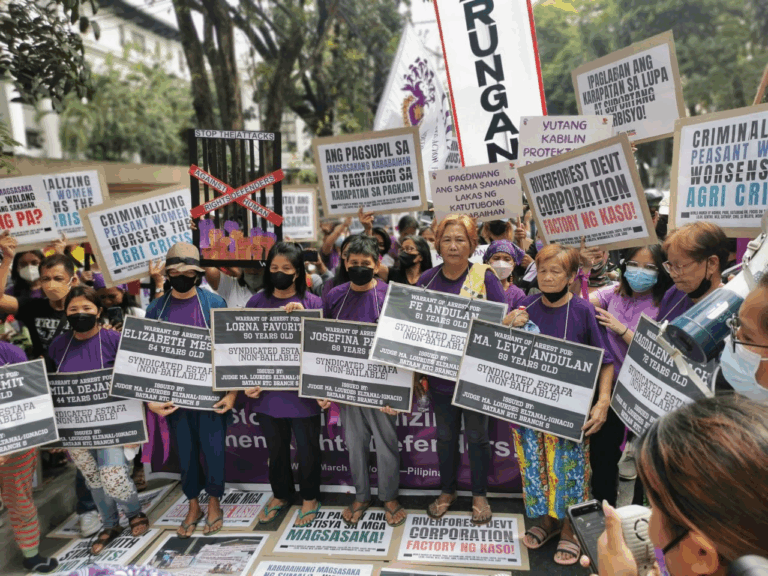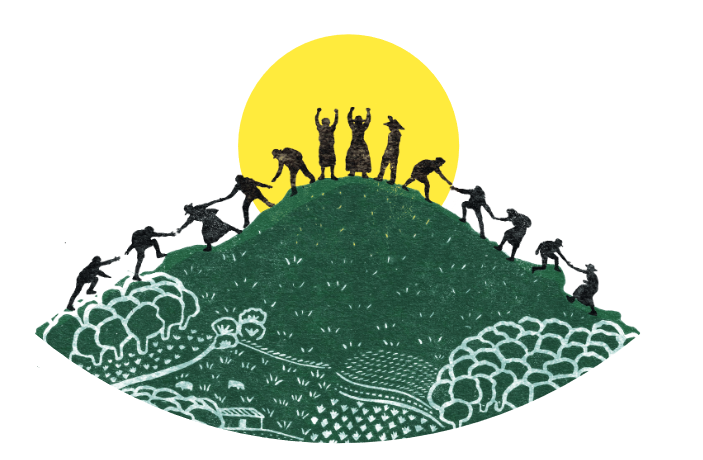France: Stop the criminalization of peasants who fight against water grabbing mega-basins
Introduction
(by Defending Peasants’ Rights, updated on June 21st)
In France, the stakes around water have grown considerably with the development of giant retention basins projects for agricultural irrigation. These water grabbing projects are an attack not only on the right to water of the family peasantry, which threatens the living and working conditions of the country’s peasants, but also on the right to a healthy environment for the whole population. The peasant movement in France, supported by environmental movements and other sectors of civil society, have initiated a fierce struggle against the imposition of these giant retention basins promoted by the government and agribusiness lobbies.
On 26 and 27 March 2023 in Sainte-Soline in the Deux-Sèvres department in France, massive mobilisations took place against these projects.
According to the organisers, 30,000 people took part in the action. One of the aims of the action was to occupy the construction site of the basins, but only a very small number of participants managed to reach them. The construction site, which for the moment is only a large hole bordered by an embankment, was guarded by a large police force. As soon as the procession approached, the police used their weapons: tear gas, stun grenades and explosives. According to the organisers, 200 people were injured among the participants, 40 seriously, including one person who spent several weeks in a coma. The observers of the demonstrations (human rights organisations, unions and elected representatives) have strongly denounced the complete disproportion between the means used by the police and the action in progress. They denounce a serious endangerment of the participants. They also report that the injured and those helping them were targeted by the police, including armed police officers on quads. In addition, some seriously injured people, including one person in a coma, were treated several hours late, as the police prevented paramedics from reaching them.
Despite this heavy repression, some people were able to dismantle part of the installation, notably the pipes and a pump. The peasants of the Confédération Paysanne (a member of La Via Campesina) also planted more than 300 metres of hedges, hedges being a major means of retaining water. In addition, they also built a greenhouse on a plot of land in Sainte-Soline, a symbol of the difficulty of setting up small-scale food farming due to lack of access to water in this region.
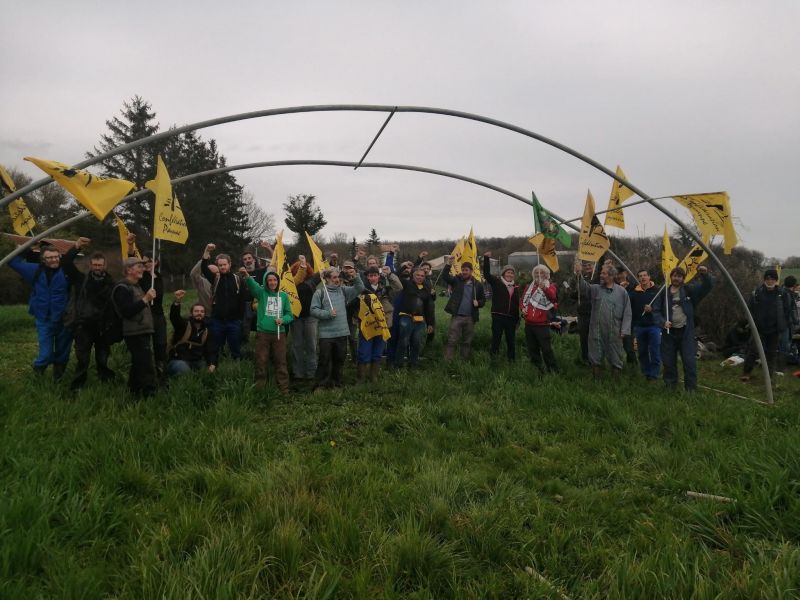
A few days after this action, the Minister of the Interior initiated proceedings to dissolve the de facto association Les Soulèvements de la Terre. Les Soulèvements de la Terre is a coalition of trade unions, associations, NGOs and local struggles. It helped organize the action, and for several years has been coordinating a campaign of actions in defense of peasant agriculture and against unnecessary projects that jeopardize farmland. For the action in question, Soulèvements de la Terre joined forces with the Bassines non merci collective, which has been fighting these projects for several years. On June 21, the Prime Minister announced the dissolution of Les Soulèvements de la Terre at a cabinet meeting. Support rallies have been announced across France and the movement intends to challenge the decision in court.
The announcement of the dissolution and the scale of the violent repression prompted a wave of support on a massive scale: a tribune signed by over 100,000 people and the birth of a 180 or so support committees across France, but also in Belgium and Switzerland. The movement is by no means dispirited: on the contrary, other actions have already taken place and Les Soulèvements de la Terre is calling for 100 days of battle for water, against those who monopolize and poison water, starting in mid-July.
For all intents and purposes, Defending Peasants’ Rights wishes to recall that the right to demonstrate and freedom of expression are human rights recognised by the French state, which has a duty to protect them and not to impede them at the cost of human life. These rights are also specifically recognised for peasants in Article 8 of the Declaration of the Rights of Peasants.
On 22 March 2023, before the massive mobilizations, the Confédération Paysanne and CETIM presented a statement to the UN Human Rights Council in Geneva. The aim of this declaration was to bring to the attention of the United Nations the situation of water grabbing caused by the giant retention basins in France, the preservation and sharing of water. With this declaration, the Confédération paysanne demanded the stop of these water grabbing projects and urged the French government to favour consultation rather than repression of activists.
Call for Solidarity with French Social Movements! Stop Police Violence NOW!
La Via Campesina calls for international solidarity for the french social movement, against police violence and the authoritarian drift of the French government.
Article by La Via Campesina in support of the peasants’ struggle against the mega-basins in France
This article was first published on La Via Campesina’s website on March 30, 2023, you can find it here.
La Via Campesina expresses the deep solidarity of our global peasant movement with the peasants in France who are fighting against the water grabbing and the imposition of mega-basins promoted by the government and the agribusiness lobbies.
In contrast to the small reservoirs traditionally built to store rainwater, whose function is both social and ecological, the mega-basins promoted by the French government pump groundwater into plastic craters, up to 18 hectares in size, drying out the soil, affecting the water cycle and the surrounding biodiversity. In addition, they accentuate the inequality in access to water, the depopulation of rural areas and the land grabbing by big companies that practice intensive agriculture.
For the past six years, the struggle against mega-basins has brought together environmentalist, trade union and peasant organizations, such as La Confédération Paysanne, one of the member organizations of LVC in France, in mobilizations alongside hundreds of activists for a fair distribution of this vital commons. Many of these demonstrators have been prosecuted in court proceedings aimed at scaring off the growing population that opposes these extractivist projects. Five of these mega-basins have been ruled illegal after a 14-year legal battle. These protests have resulted in suspended prison sentences and fines for farmers just for protesting. Similarly, the spokesperson for the Confédération Paysanne was prosecuted by water grabbers after a symbolic action involving the dismantling of a mega-basin pump.
In a context of climate change, the protection of water and land is a ethical imperative from which no one can ignore. Preserving these commons from agribusiness grabbing, as well as the livelihoods of those who feed most of the population and are on the front lines against the commodification of life, requires a collective effort of solidarity. This effort is in line with the defense of the implementation of the United Nations Declaration on the Rights of Peasants and Other People Working in Rural Areas (Undrop), which clearly states the right of peasants to access water, to resources necessary for food production and to participate in the management of these commons.
In opposition to the government’s will to pursue the construction of new mega-basins that are harmful to the environment and agricultural employment, a new large international demonstration will take place on March 24, 25 and 26 in the Poitou region, where the Confédération Paysanne and La Via Campesina will be present to demand from the French government to stop water grabbing projects (through a moratorium) as well as to revise policies regarding the management of the commons in order to guarantee projects that respond to a just agricultural transition and to the climatic challenges.
We also express our concern about the government’s refusal to dialogue, recently expressed by the banning of the next demonstration by order of the Deux-Sèvres prefecture. If the authorities do not listen to the voice of the peasants and all those who have demonstrated the absurdity of these projects, neglecting the democratic debate with the population directly affected by their measures, civil disobedience will prevail and we will globalize the struggle to globalize hope.

